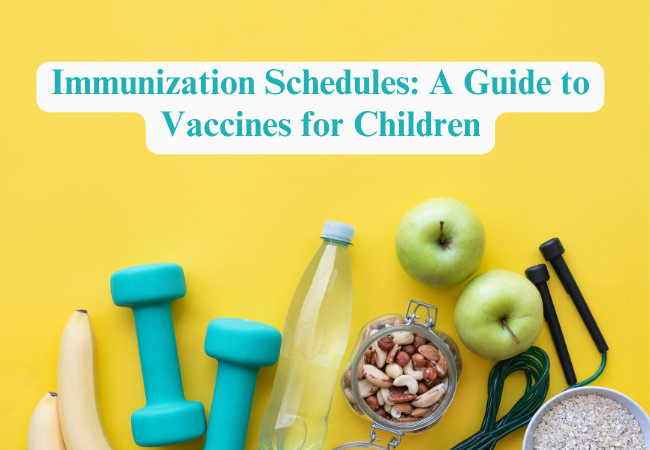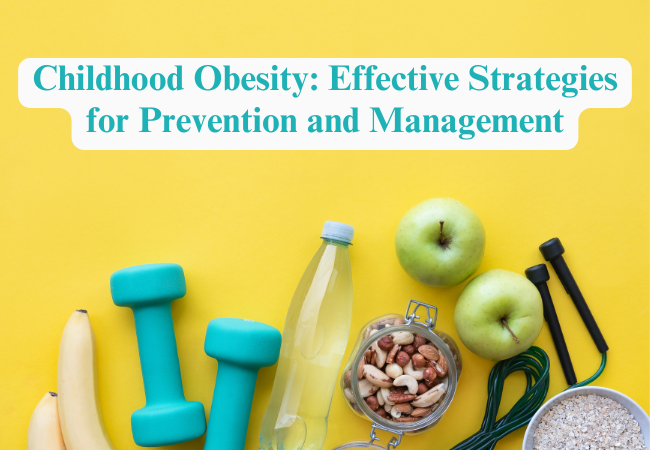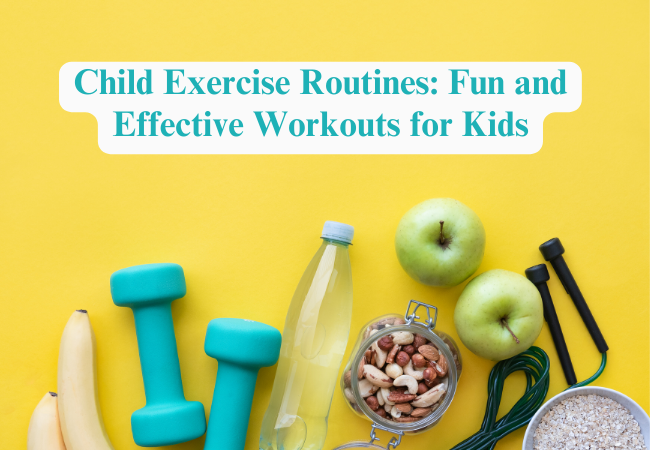Immunization Schedules: A Guide to Vaccines for Children
Explore comprehensive immunization schedules for children. Learn about essential vaccines, recommended timing and the importance of keeping up with your child’s vaccination schedule for their health and safety.
Vaccines are one of the most effective tools we have to protect children from serious diseases. By following recommended immunization schedules, parents can help ensure their children stay healthy and contribute to community immunity. In this guide, we’ll explore the importance of vaccinations, break down the recommended immunization schedule and address common questions about childhood vaccines.
Why Vaccinations Matter

Before we dive into the schedules, let’s understand why vaccinations are so crucial:
- Disease Prevention: Vaccines protect children from serious and potentially life-threatening diseases.
- Community Protection: High vaccination rates help protect those who can’t be vaccinated, like newborns or immunocompromised individuals.
- Long-term Health: Some vaccines provide lifelong protection against diseases.
- Cost-Effective: Preventing diseases through vaccination is far less expensive than treating them.
Understanding Immunization Schedules
Immunization schedules are carefully designed by health experts to provide the best protection at the most appropriate ages. Let’s break down the recommended schedule for children from birth to 18 years old.
Birth to 15 Months
During this period, children receive several important vaccines:
- Hepatitis B (HepB): First dose at birth, second between 1-2 months, third between 6-18 months
- Rotavirus (RV): 2-3 doses between 2-6 months
- Diphtheria, Tetanus, Pertussis (DTaP): 4 doses at 2, 4, 6 and 15-18 months
- Haemophilus influenzae type b (Hib): 3-4 doses at 2, 4, 6 and 12-15 months
- Pneumococcal conjugate (PCV13): 4 doses at 2, 4, 6 and 12-15 months
- Inactivated Poliovirus (IPV): 3 doses at 2, 4 and 6-18 months
- Influenza (Flu): Annually starting at 6 months
- Measles, Mumps, Rubella (MMR): First dose at 12-15 months
- Varicella (Chickenpox): First dose at 12-15 months
- Hepatitis A (HepA): 2 doses starting at 12 months
18 Months to 18 Years
As children grow, they need additional doses of some vaccines and new vaccines to maintain protection:
- DTaP: 5th dose at 4-6 years
- IPV: 4th dose at 4-6 years
- MMR: 2nd dose at 4-6 years
- Varicella: 2nd dose at 4-6 years
- Human Papillomavirus (HPV): 2 doses at 11-12 years
- Meningococcal conjugate (MenACWY): First dose at 11-12 years, booster at 16 years
- Tetanus, Diphtheria, Pertussis (Tdap): One dose at 11-12 years
Special Considerations
Some children may need additional vaccines or altered schedules due to:
- Travel: Certain destinations may require extra vaccinations
- Health Conditions: Some medical conditions may necessitate additional vaccines
- Catch-Up Vaccinations: Children who have missed vaccines may need a modified schedule
Always consult with your healthcare provider about your child’s specific needs.
Addressing Common Concerns
Many parents have questions about vaccine safety and necessity. Here are some key points to remember:
- Safety: Vaccines undergo rigorous testing and are continually monitored for safety.
- Side Effects: Most side effects are mild and temporary. Serious side effects are extremely rare.
- Multiple Vaccines: The immune system can easily handle multiple vaccines at once.
- Alternative Schedules: Delaying vaccines leaves children vulnerable to diseases and is not recommended by health experts.
Keeping Track of Vaccinations
Maintaining accurate records of your child’s vaccinations is crucial. Here are some tips:
- Ask for a Vaccine Record Card: Keep this updated and bring it to all medical appointments.
- Use Digital Tools: Many healthcare providers offer apps or online portals to track vaccinations.
- School Records: Keep copies of vaccination records provided to schools.
Conclusion
Adhering to the recommended immunization schedule is one of the most important steps parents can take to protect their children’s health. Vaccines have dramatically reduced the incidence of many serious childhood diseases, but these illnesses still exist and can spread if vaccination rates drop.
Remember, vaccinations not only protect your child but also contribute to the health of your community. If you have any questions or concerns about your child’s vaccination schedule, don’t hesitate to discuss them with your healthcare provider.
By staying informed and following recommended guidelines, you’re taking a crucial step in safeguarding your child’s health and future.
Learn more about vaccine safety from the CDC
Explore the full recommended immunization schedule
Remember, your child’s health is a partnership between you and your healthcare provider. Stay informed, ask questions and work together to keep your child healthy and protected.
For more information and guide, visit usaparentingtips.com






